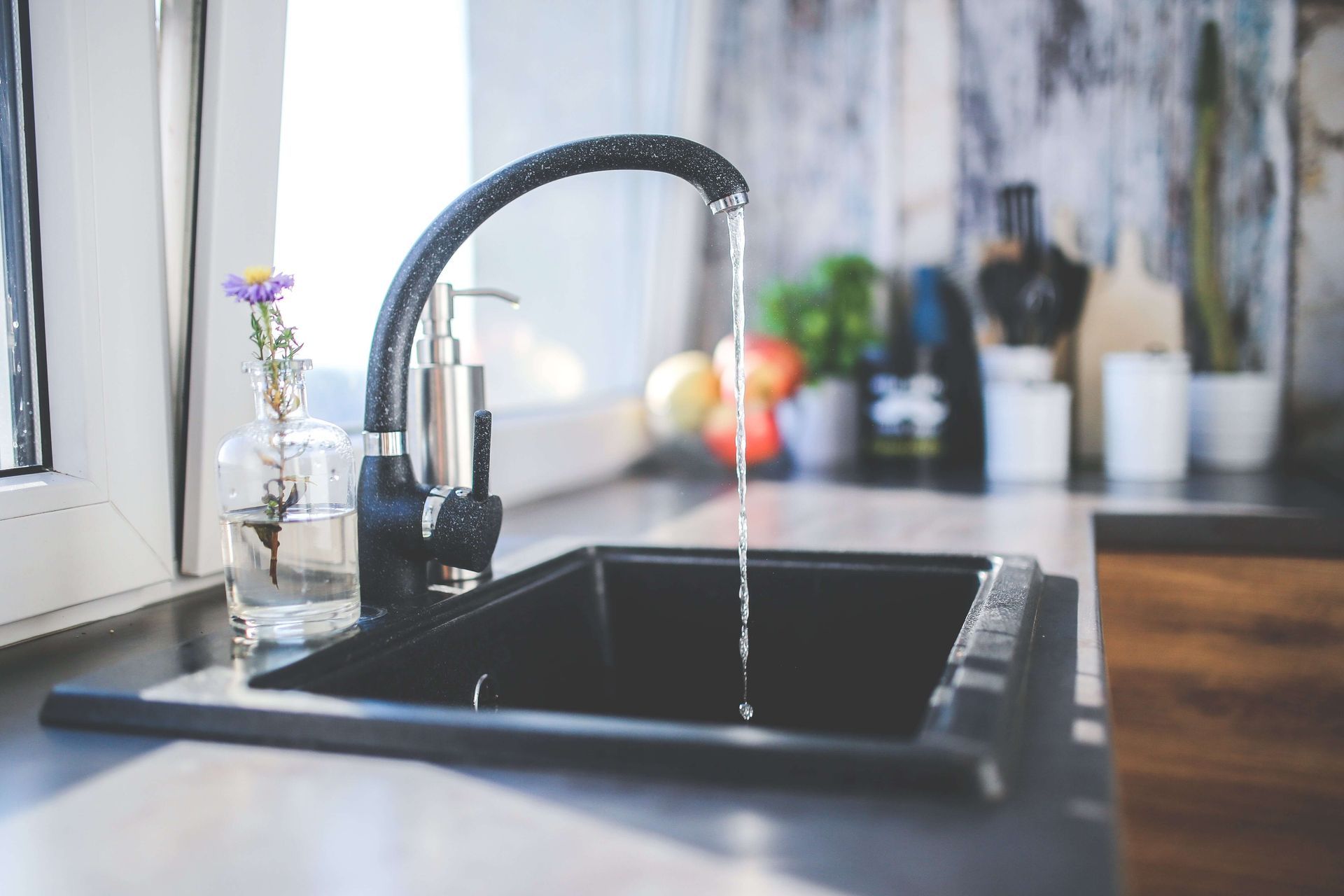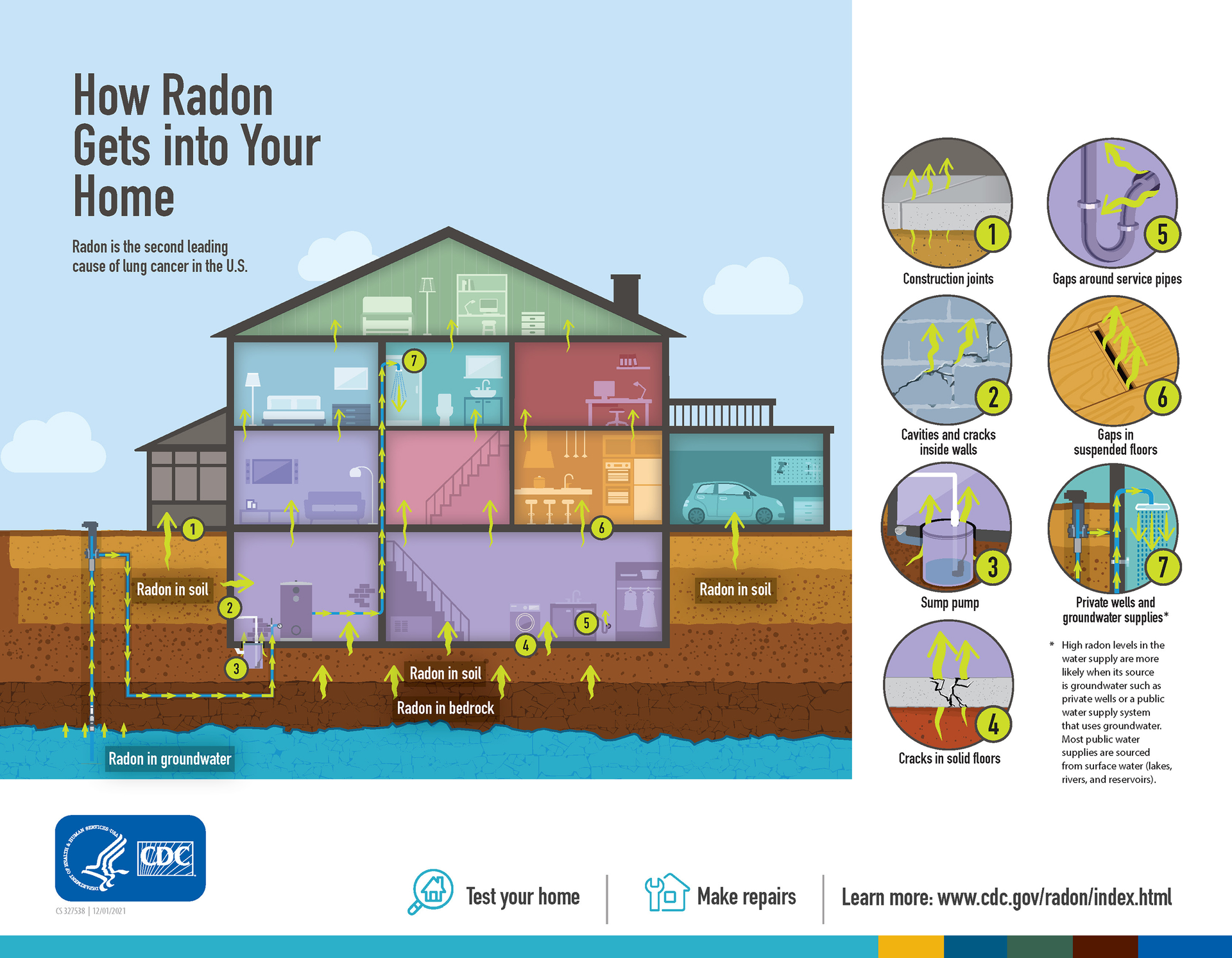PROVIDING PEACE OF MIND FOR HOMES ACROSS RVA.
Residential
Radon Testing in Richmond, VA
Affordable, accurate, and convenient radon
testing
for your family and pets.

While 1 in 15 homes across the U.S. have elevated radon levels, the estimated number of homes with elevated radon levels in Virginia is 25%.
Your neighbor could have elevated radon levels while your home does not.
How is that possible?
It's because radon cannot be predicted. You can't see it, smell it, taste it, or touch it.
Radon levels are affected by events that disrupt the soil, such as construction and renovations.
Plus, any natural elements added to your home, such as granite, can impact the radon levels in your home.
Because radon affects indoor air quality, the EPA recommends testing your home every 18-24 months (alternating seasons).
Facts About Radon & Lung Cancer
Radon is a Class A Human Carcinogen. Approximately 21,000 people die yearly from lung cancer due to elevated radon exposure.
That's roughly 15% of all lung cancer deaths each year.
People who smoke and are also exposed to elevated radon levels are 10 times more likely to develop lung cancer than non-smokers.
The longer you are exposed to elevated radon levels, the higher the health risk. The higher the radon levels, the greater the health risk.
Radon & Pets
Elevated radon levels are also dangerous for your pets.
Just as in humans, your pet breathes in radioactive radon particles. If elevated levels are within the home, the risk of health and lung cancer increases for pets, too.
Symptoms include coughing, breathing difficulties, hacking, fever, abnormal swelling, or unusual skin masses.
How do you know if you have elevated levels of radon in your home?
The only way to know is to test.
Factors that Prompt Residential Radon Testing
We've covered that you should have your home tested approximately every two years. But other changes to your home are also reasons to test or retest for radon levels, such as:
- New Construction Builds
- Renovation/Reconstruction
- Post-Remediation Testing
New Construction
If your home is a new construction build, inquire if a measured radon test has been performed.
There are voluntary guidelines from the EPA for builders to increase radon resistance from the beginning of the build.
Once the building is complete, radon testing is essential to identify radon levels for new buyers.
If it has been tested and the levels are below 4 pCi/L (picocuries per liter of air), you can simply retest two years from that test date.
If your new build has not been tested,
reach out to RVA Radon for the process to have it tested.
Renovation/Reconstruction
Radon testing for renovations or reconstructions are suggested both before and after the job is completed.
If elevated radon levels are present prior to building, then radon-resistant construction measures can be used. This is more cost-effective than remediation efforts later.
Even if you test and radon levels are not elevated, it's important to test again after the renovation, as this construction could have introduced new factors that would affect radon levels.
Testing for radon before and after is practical and prevents additional health risks from occurring.
Ask about our before-and-after package deal.
ADDITIONAL RADON SERVICES
Post-Remediation Services and Testing
Should the results of your radon testing indicate elevated radon levels, remediation services are necessary to reduce the radon levels in your home.
To ensure your confidence in objective, accurate testing, RVA Radon will facilitate your radon remediation process or connect you with reputable remediation/mitigation companies in the Richmond area.
Your relationship with RVA Radon does not end there. After remediation/mitigation concludes, we will retest to confirm that the levels are back below action level.
Then, you can resume regular testing (approximately every two years) to ensure your system is working correctly.
Radon Testing for Water

Any home with a private well or living in an area with groundwater with elevated radon levels should be tested.
The EPA’s guidelines for testing radon in water are:
· There are known problems with groundwater or drinking water in your area
· Conditions near your well have changed significantly (i.e. flooding, land disturbances, and new construction or industrial activity)
· You replace or repair any part of your well system
· You notice a change in your water quality that implies a soil disturbance (i.e. odor, color, taste)
Contact our office to learn more about radon testing for water for your home.

"April, thank you for your sweet email and great report! We so enjoyed working with you. Your ears should have been burning as we were all singing your praises. You're brilliant, kind, and a delight.
I'm making a note on my calendar in 18 months to repeat the test."
Sally & Mark Wittkofski
Richmond, VA


